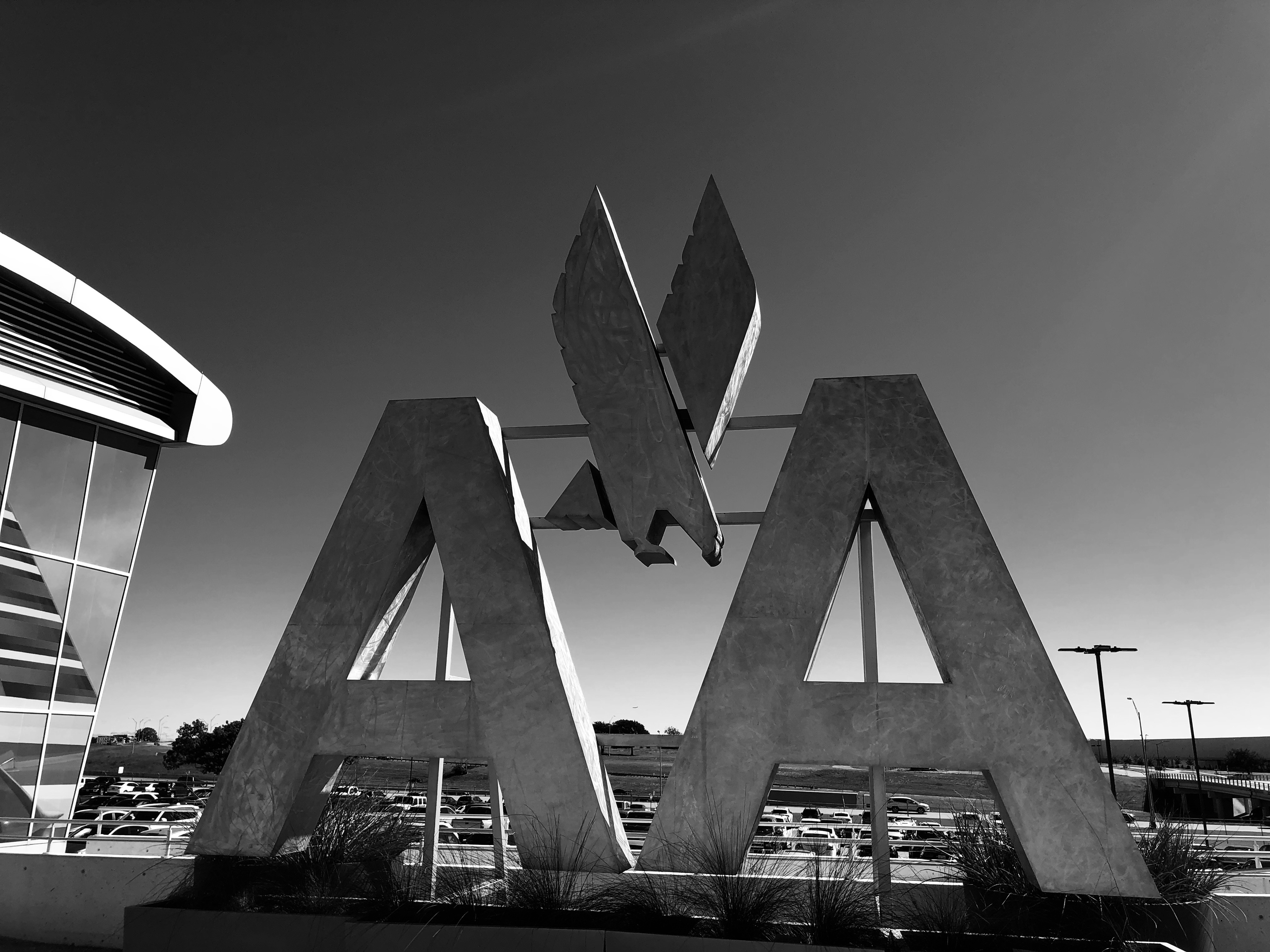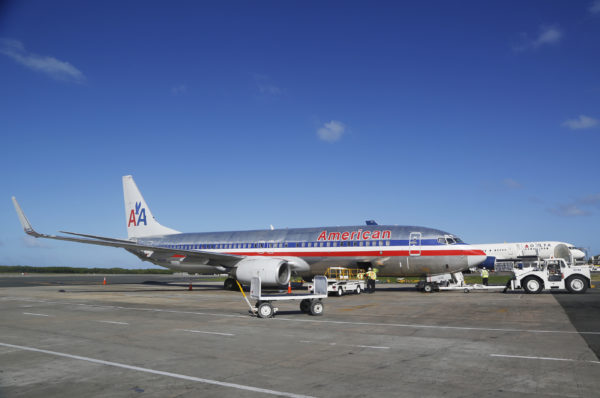American Airlines Changes Policy On Delays And Cancellations, Tougher For Customers. Is It Fair?

American Airlines recently made changes to their policy on delays and cancellations. For many years, the legacy airline carriers had agreements to help each other. Those agreements allowed them to move passengers onto other airlines when they had a problem. American Airlines recent changes will make it harder for some passengers to get where they’re going. Is that fair? Good question. First, let’s set the table.
What The Heck Is An Interline Agreement, And Why Should You Care?
Airlines have some really cool, arcane terms for certain transportation actions. For example, a “direct” flight isn’t the same as a “nonstop” flight. The former can stop somewhere on the way to your final journey and still technically be a direct flight. Most of us would argue that a plane landing somewhere on the way towards where we’re going isn’t exactly direct.
The key term here is “interline agreement”. This is the mechanism airlines use to move passengers back and forth between them when they have problems. Be it weather, mechanical, crew or other issues, interline agreements set a price the airlines will do business with each other when these situations arise. Not all airlines have interline agreements. Even though I really enjoyed flying Frontier, their lack of interline agreements is a key reason I’m nervous to fly them more often. Same with Spirit Airlines, at least in a Big Front Seat.
The bigger carriers in the US have generally had these agreements over the years. Southwest was (and still is) the notable exception who doesn’t participate in the US. A few years ago, Delta and American terminated their agreement. The premise was that Delta wanted too much money and American balked. Earlier this year, the two made up and signed a new interline agreement. That meant American, Delta and United all had agreements with each other to move passengers to the others when needed.
What Did American Change?
In the past, airlines didn’t really have formal policies on which customers they would (or wouldn’t) move if they had a problem with a flight. There were informal practices, it was and is a lot easier as a top-tier elite to convince an airline to move me to another carrier when my flight is delayed. American Airlines appears to have changed that, moving to a policy where customers who fly in coach and don’t have elite status won’t be moved to other airlines if there’s a problem.
That means if you only fly once or twice a year, one of the benefits you might have considered when choosing American over Spirit or Frontier is now gone.
Is This Change Fair?
Okay, put down the pitchforks for just a minute. Everyone wants better benefits. If it didn’t cost us anything, of course we’d want all the airlines to let us fly on another carrier when there’s a problem.
But, is it fair for them to say no?
Your contract is with the airline to deliver you to a specific place at a specific time. If they can’t perform the service, do they owe more than your money back? If you pay for an oil change at your local auto mechanic and schedule your appointment for 10am on Tuesday, should they have to pay Jiffy Lube to carry out the service if they can’t change your oil at the agreed upon time?
We view airlines and hotels differently than we do many other services. And, even without laws forcing them to do so, airlines and hotels accommodate us in ways that you might not otherwise expect. A hotel that’s sold out will generally walk you to another one nearby, and you can usually receive some compensation for the inconvenience. In many cases, gestures like that are done to preserve the customer relationship.
From a business standpoint, I can understand why an airline wouldn’t want to move customers to another airline if they don’t have to. It’s not just the money. The customer might enjoy the experience more somewhere else and not buy another ticket from me again. In theory, if the airline agreed to the interline agreement, they should be comfortable with customers being moved at the agreed upon rates. But, not all customers are created equal. I’m much more likely to want to move a customer that spends $10,000 a year with me than one who spends $100. That’s just the reality of business.
Meanwhile, how is a customer supposed to be able to buy another ticket last-minute for the same price and timing as the one they originally bought. That’s a difficult prospect.
The Final Two Pennies
I’m really curious to hear people’s thoughts on this. I’m not asking what you want, but what you think is fair. If you were the airline, would you want to pay to move a customer who may never fly your airline again? I struggle with this one. Ultimately, if we’re talking about “Pizza Airlines” I’d probably want to make it right for as many customer as financially possible. That would mean some gut calls for me. In my “day job”, we own a business that prices their services so they can offer a great service recovery when things go wrong. We don’t want that to happen. But we want to make sure our business is sustainable enough that we don’t think twice about doing the right thing. In the airline world, raising prices is frequently challenging.
Do you think it’s fair for an airline to pick and choose which customers it helps when their flight is delayed or cancelled?
Did you enjoy this post? Please share it! There’s plenty of ways to do that below.
You can also follow me on Twitter, Facebook and Instagram.
And, I hope you’ll check out my podcast, Miles To Go. We cover the latest travel news, tips and tricks every week so you can save money while you travel better. From Disney to Dubai, San Francisco to Sydney, American Airlines to WestJet, we’ve got you covered!


I have not had an airline willing to move me to another carrier once in the last 20 years. Even with a delay that resulted in waiting 3 days for an available seat. The last time I had an airline consider moving me to a codeshare partner was years and years ago with Continental; and because I was flying with miles, I was denied when all other passengers were re-booked and spent an extra 4 days in Bali waiting on a aircraft change.
So when would an airline typically offer to rebook you with a partner?
Pam, it’s not necessarily just partners. American moves passengers to Delta and United regularly and vice versa. It happens more than you know it, though less today than a few years ago.
remember when “240” was a verb? You told the gate agent that they need to 240 you to another airline. I still remember those days.
Steve, ROFL. That’s REALLY old school.
A few years ago, amidst a UA meltdown at LHR, they moved me to US Airways.
More generally, the airlines benefit from a hugely one-sided contract: the passenger must turn up on time or they lose their booking with no refund. The passenger cannot cancel on the airline. Conversely the airline can decide, at its discretion, to cancel the customer, notwithstanding that the passenger will likely have consequential losses (non-refundable hotels or car rental for example).
Either the contract should be equitable or the airlines should be required to honor their side of the bargain or pay damages.
NB, I’m nodding my head. The contracts with airlines are skewed tremendously in favor of the airlines. I’ve long advocated a bit more balance there, even if it was just for frequent customers.
What would happen if all of us who are delayed begin to systematically initiate disputes with our credit card issuer? Might that get their attention? Airlines seem to operate with this bluff of immunity that I am not sure really exists. Especially if our journey might depart from Europe.
wabderlust18, it’s hard to crowdsource change like this. And, I’m not entirely sure it’s fair to say that an airline should move us to another one when there’s a problem.
I own an independent business. If I can’t provide my customer the goods or services that we’ve agreed upon, that’s completely on me to make it right for them unless my cost is absolutely ruinous. That’s without the prepayment that almost always occurs with an airline ticket. If I screw up, my customer should absolutely not bear the repercussions of my mistake or problem. I feel completely the same regarding airlines. Endorsing a ticket over to another airline will only work if the other airline has space anyway, so it won’t always work out for the customer in the first place, but should be done wherever possible to make the customer whole. I find AA’s policy to be greedy, one sided, shortsighted, and exceedingly unfair. What good is an agreement if only one party is required to abide by the terms?
Christian, fair point about a one-sided agreement. I’ve argued for quite some time that airlines should issue “get out of jail free” cards to loyal customers for when the customer makes a mistake to counter the broken planes, poor service and other issues business travelers encounter.
Given how many loopholes Airlines are able to give themselves, this doesn’t surprise me. Its not going to be the reason I cease giving American Airlines my business, but, its just another clear example of customer unfriendly practices. I too get nervous when flying Southwest even, because they don’t interline with anyone. I wouldn’t fly Frontier or Spirit unless I had to, because, like Southwest, they don’t interline, but unlike Southwest, their networks are much smaller.
In theory, AA can do whatever they like, but, we should be putting a big spotlight on these things. Especially when they get away with saying that they made a mistake on a “good fare deal”, yet if the common person makes a mistake and doesn’t cancel within 24 hours, tough. There are many examples where the deck is stacked against the one or two time a year flyer, and its unfortunate. I dare say, for some, it could be why they don’t fly more often, because if you don’t know how the game works, flying can be a pretty arduous experience.
Trevor, flying for the uninformed is definitely becoming more challenging. Heck, if you and I can’t keep track of all the rules, how can someone who flies once or twice a year keep up?